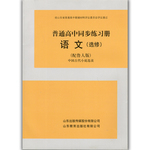题目内容
Mr Smith,______of the ______speech,started to read a novel.
A. tired;boring B. tiring;bored
C. tired;boring D. tiring;boring
练习册系列答案
 海淀黄冈名师导航系列答案
海淀黄冈名师导航系列答案 普通高中同步练习册系列答案
普通高中同步练习册系列答案
相关题目
题目内容
Mr Smith,______of the ______speech,started to read a novel.
A. tired;boring B. tiring;bored
C. tired;boring D. tiring;boring
 海淀黄冈名师导航系列答案
海淀黄冈名师导航系列答案 普通高中同步练习册系列答案
普通高中同步练习册系列答案